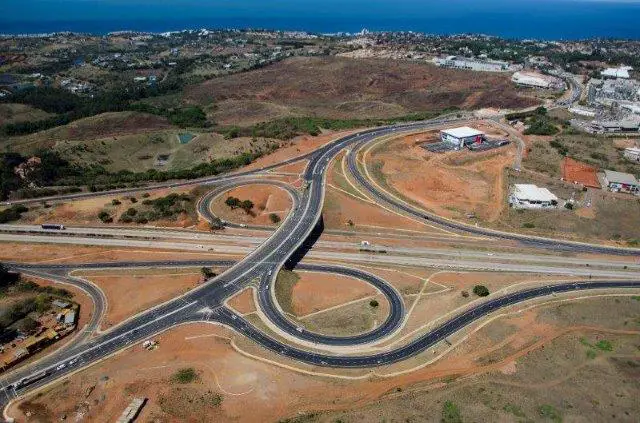Engineering consultancy SMEC is enhancing its services in Africa especially South Africa where it is involved in a range of projects on the continent. “We are extremely excited to be part of the ‘Africa Rising’ era, where project capital is in abundance and Afro-optimism is gaining momentum,” comments Andre van der Walt, functional head, power and energy, SMEC South Africa.
‘As democracy matures across our continent, the consulting engineering industry is also evolving,” adds van der Walt from Engineering consultancy SMEC . Whereas in the past consulting engineers focused mainly on Greenfield projects, the focus now is far more diversified.
It ranges from programmes to create capacity for labour-intensive maintenance, construction work to asset management services throughout the lifecycle of infrastructure projects. It also encompasses programme-level support to national, provincial and local government. The aim here is to facilitate service delivery.
Infrastructure feasibility studies and PPP (Public Private Partnership) advisory services are also included in the scope. Another critical component is operational and maintenance advisory and project management.
SMEC’s Africa division has secured a number of significant projects to date, affirms Tom Marshall, chief operating officer, Africa. These include: sanitation master planning in Rwanda, the Muranga water supply project in Kenya and an urban infrastructure project in Tanzania, among others.
In North Africa, SMEC is involved with the 25-year Urban Development Master plan for the Rabat Metropolitan Area in Morocco, covering the cities of Rabat, Salé and Témara. The master plan is being developed in conjunction with the Ministry of Urban Planning.
This master plan will provide a framework for public and private investment in urban rehabilitation and sustainable development of Rabat’s infrastructure, transportation system, public assets, urban services and housing.
“SMEC will focus on incorporating modern and flexible urban development concepts into the master plan in order to highlight the city’s diverse heritage,” points out Paulo Trindade, operations manager: North Africa region, Morocco.
In Malawi, SMEC provided consultancy services to the government to assist in developing an integrated water resources management programme. This project will ensure an adequate raw water supply to local town centres up to 2050 for all identified viable uses, including treatment plants and transmission mains.
SMEC’s services included feasibility studies of various water sources, identification of the most cost-effective, sustainable and economically viable water source, preliminary cost estimates (including impacts on land and assets) and the preliminary design of structures on identified raw water sources.
In Sierra Leone, SMEC was involved with a project to ensure access to a safe and reliable water supply and public sanitation services in the towns of Bo, Kenema and Makeni. SMEC’s technical assistance included design review and construction supervision and procurement and contract management, as well as capacity building of Sierra Leone Water Company employees.
In Tanzania, SMEC provided construction supervision services for urban infrastructure development for the Capital Development Authority in Dodoma Municipality. The project aimed to improve access to basic urban services through the rehabilitation and expansion of urban infrastructure.
SMEC’s scope of work included upgrading Kisasa, Chang’ombe and Kikuyu community roads to bitumen standard, construction of stormwater drains and the provision of bus bays and road furniture.
“In the public infrastructure space, the focus ultimately remains on service delivery to our people. Almost two thirds of our industry’s income is derived from the public sector,” van der Walt elaborates.
“The industry is currently in a negative growth cycle and, as a result, the majority of firms are under immense pressure to remain profitable, while retaining the technical skills that ultimately define our industry.” Profit margins for firms with more than 100 employees is at an all-time low of 4.3%, and is expected to decrease even further.
It is for such reasons that Africa remains a crucial focus for SMEC. “While we are gaining benefit in growing our business, we are also a part of shaping history in Africa. Yes, there are challenges, but there is no other market that offers a comparable potential for infrastructure investment over the next few decades,” van der Walt concludes.
Ends
About SMEC
SMEC provides consultancy services for the lifecycle of a project to a broad range of sectors, which include; hydropower, transport, water, natural resources and environment, geotechnical, mining, tunnelling, urban development, renewable energy, power, government and advisory services and social infrastructure development. The SMEC Group has over 5 300 employees and an established network of over 75 offices throughout Australia, Africa, Asia, the Middle East, the Pacific, North and South America.
Media Contact
Gerhard Hope
NGAGE Public Relations
Phone: (011) 867-7763
Fax: 086 512 3352
Cell: 078 824 8723
Email: [email protected]
Web: www.ngage.co.za
Browse the NGAGE Media Zone for more client press releases and photographs at http://media.ngage.co.za

Leave a Reply